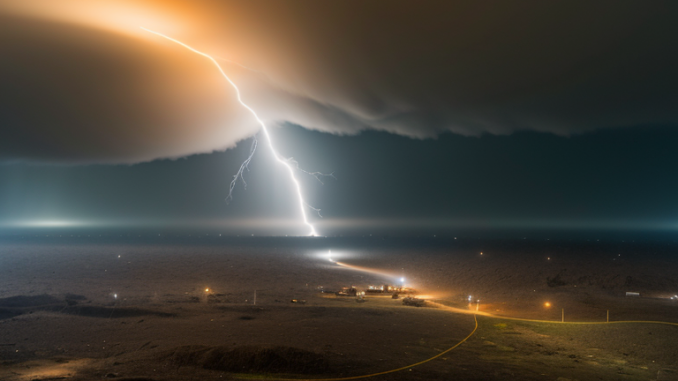
The cryptocurrency mixing service, Tornado Cash, is under intense government scrutiny, which has created a clash between financial privacy and national security. This platform, known for hiding the origins of funds, has sparked a legal battle that raises important questions about the balance between personal privacy and the greater good.
The issue at hand is the government’s authority to regulate and ban transactions involving property linked to foreign cyber activities. To address these concerns, the President has declared national emergencies, focusing on issues like malicious foreign cyber activities and North Korea’s nuclear missile program. As a result, the government now has the power to restrict the use of services like Tornado Cash.
Created by two individuals from Russia and a team of skilled developers, Tornado Cash operates on the Ethereum blockchain using smart contracts. Users can deposit their funds into a mixing pool, where their money combines with other users’ deposits. This blending of funds creates a complex network that makes it difficult to trace the original source of any given transaction.
To enhance user privacy, Tornado Cash uses relayers, third-party entities that execute transactions on behalf of users, making it even harder to identify the parties involved. As more users participate in the mixing pool, it becomes increasingly challenging to associate specific withdrawals with their respective deposits.
However, the government argues that its actions against Tornado Cash do not violate First Amendment rights. Those who believe that the government’s restrictions infringe on their freedom of speech have taken the matter to court. Despite their claims, the court has upheld the government’s actions, stating that the First Amendment was not implicated by the designation of Tornado Cash.
One point of contention revolves around whether the government’s designation of Tornado Cash infringes on the freedom of association. Plaintiffs argue that the government’s restrictions require the disclosure of major donors or members, thereby undermining the privacy of private associations. However, the court ruled that the designation does not impose such requirements, preserving the confidentiality of donors and members.
The government’s actions find support in the International Emergency Economic Powers Act, which grants the President the authority to declare national emergencies and regulate related transactions. By designating Tornado Cash as a Specially Designated National or Blocked Person, the government can block all property and interests associated with the service.
Critics argue that the government’s actions set a dangerous precedent, potentially encroaching on financial privacy and stifling innovation in the cryptocurrency space. They believe that the ability to use services like Tornado Cash is a personal choice and should not be subject to government intervention.
Proponents of the government’s actions insist that regulating cryptocurrency services like Tornado Cash is crucial for national security. By preventing the flow of funds to entities engaged in malicious cyber activities, they argue that these measures are necessary to protect the country’s economic infrastructure.
As the legal battle unfolds, the future of Tornado Cash remains uncertain. Its founders and supporters argue that financial privacy is a fundamental right that must be protected, while the government emphasizes the need to safeguard national security interests.
In a world where technology blurs the line between privacy and security, the case of Tornado Cash serves as a reminder of the ongoing debate surrounding cryptocurrency regulation. The outcome of this legal battle will have far-reaching implications for the future of financial privacy and the government’s role in the digital world.

Be the first to comment